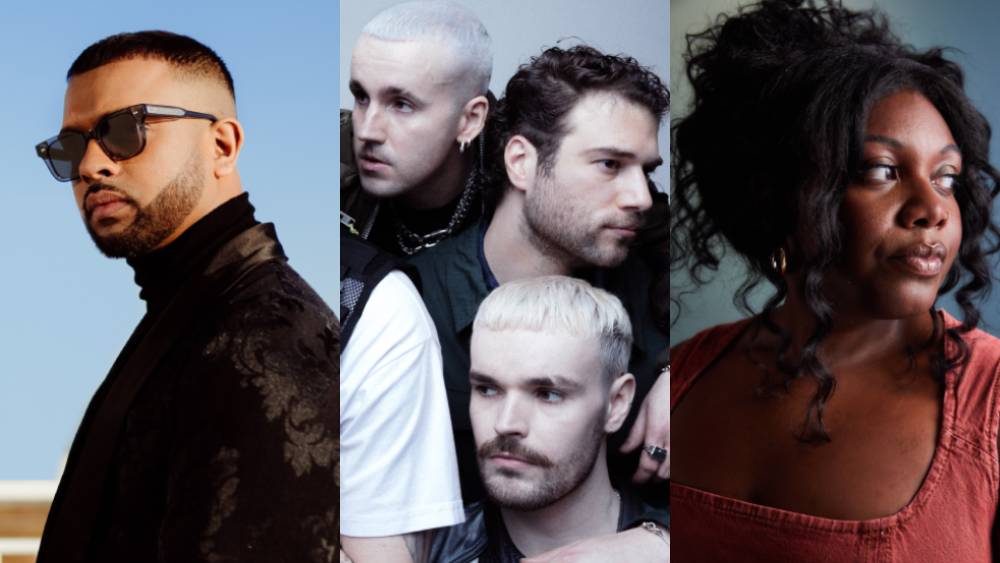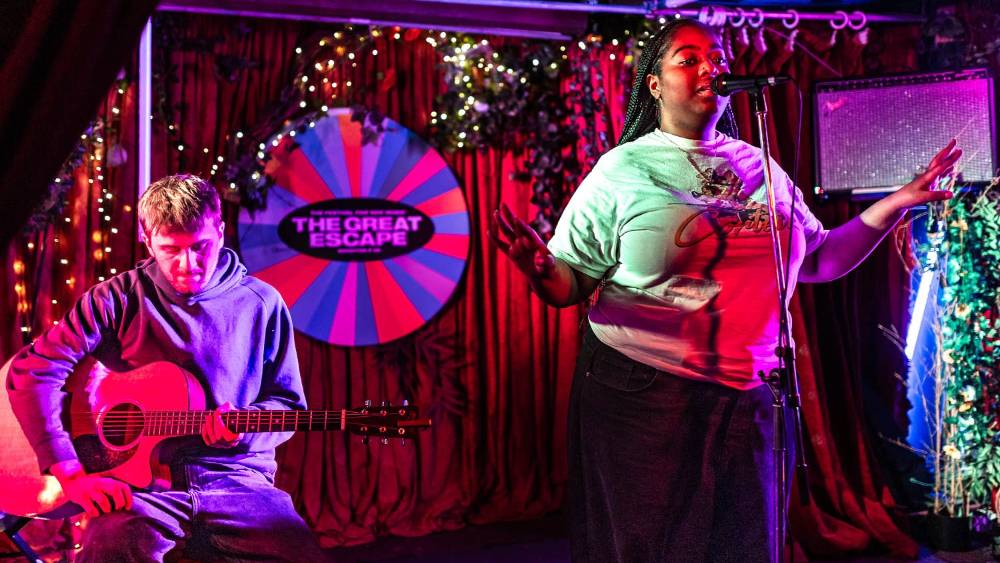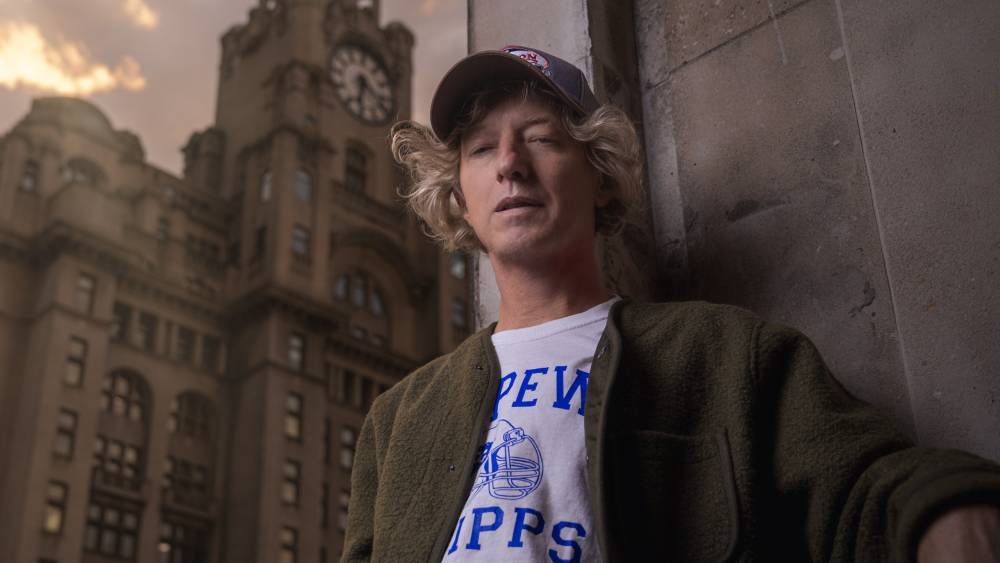‘We all bought houses with our first PRS royalty cheques,’ EMF’s Ian Dench tells M about how their hit record Unbelievable, released 35 years ago this month, changed their lives. ‘I went from living in a bedsit on housing benefits to owning my place within a year. It was incredible.’
Alongside keyboard player Derry Brownson, drummer Mark Decloedt, singer James Atkin and the late bassist Zac Foley, Ian and his bandmates enjoyed a stratospheric rise as their debut single landed at number three in the UK singles chart in December 1990. Even better was to come, though, as Unbelievable aptly defied the odds by topping the Billboard Hot 100 in the US seven months later.
Emboldened by the musical zeitgeist of the times, EMF plucked from the array of sounds that were colliding across the UK in the early nineties: think the indie guitars of bands like The Cure and the just-split The Smiths, the rave of acid house and hip hop’s bombastic beats.
‘The scene was full of guitar music, but then there was also the weight of hip hop alongside electronic synths which seemed very punk,’ Ian says now. ‘Bands like the Happy Mondays and Jesus Jones were mixing things up — it was so exciting.
‘I always thought there must be some way to put these styles together. Being unafraid to combine them was partly due to this arrogance of youth. You don’t know any better — you’re just striving to be as creative as possible.’
'To this day, I feel I can say things more easily via music than any other way.’
Growing up in Gloucester, Ian’s musical ambitions were first sparked by hearing the Sex Pistols’ riotous 1976 single Anarchy in the UK. The energy and attitude of punk music obliterated young Ian’s previous preconceptions about what music could be.
‘Punk bands like the Pistols and this Gloucester group Demob just made it all seem possible,’ he recalls. ‘You just get a guitar and start a band. So I did that: I got a paper round [to afford a guitar] and started a band with some mates. We wrote songs from the start. They were terrible, but I loved the thought that perhaps we could do this.’
Moving on from this early love of punk to embracing the psychedelic rock of The Doors, this shift in taste ultimately led Ian to form a new outfit, Apple Mosaic. The group signed a deal with Virgin Records, prompting Ian to drop out of his degree at Oxford University’s Ruskin School of Art to go in to the studio to record.
‘Our music featured a lot of teenage poetry, as it was a way of saying how you felt,’ Ian says. ‘So many brilliant bands have come out of England because we just can’t express ourselves [outside of music]. The English use music to say how we feel because we can say it obliquely and not directly, and that’s exactly what I did. To this day, I feel I can say things more easily via music than any other way.’
Apple Mosaic didn’t last long on Virgin’s roster, but they did manage to secure another deal to release their debut album Hole in 1988. However, slow sales and stalling momentum meant the group inevitably split. ‘I ended up living back in Gloucester at the age of 25,’ Ian recalls of that period. ‘My girlfriend, who I met on the way to Oxford, dumped me — I don’t blame her, my prospects didn’t look great back then. But that’s when we started EMF.’
Forming in October 1989 after Ian met EMF vocalist James in a record shop, the band swiftly got to work penning songs that would make up their 1991 debut album Schubert Dip. The pick of the bunch was Unbelievable, initially written as Ian continued to stew over his break-up (hence such lyrics as: ‘The things you say / Your purple prose just gives you away / The things you say / You’re unbelievable’).
‘We thought it would be a taster single to set the scene,’ Ian recalls of the decision to release Unbelievable in October 1990. ‘But when it came out, it went crazy.’
Young punk producer Ralph Jezzard was enlisted to work on the single and ended up producing much of Schubert Dip. ‘Ralph went on to become like a band member,’ Ian says. ‘Sadly, he died a few months ago. No one could quite capture our sound like he could.’
Ralph was behind the distinctive ‘oooh’ sample that runs throughout Unbelievable, sourced from a Def Jam recording of comedian Andrew Dice Clay. ‘We didn’t know who [Andrew] was, but then we found out he was this misogynistic comedian,’ Ian recalls. ‘At the time, we were just using anything we could find that was interesting to try and change up the music.’
Unbelievable was an example, Ian notes, of ‘textbook overnight success — you couldn’t have dreamed it to be any better’.
‘We were suddenly touring the world,’ he adds. ‘At the start it was amazing. It was all about the energy of youth and being in a successful band. But then EMF became this juggernaut and there were expectations to write a follow-up hit. The pressure was really tough.’
Ian’s Apple Mosaic experience had at least taught him how tricky the music industry could be, and he was determined to succeed in the long-term with EMF. His bandmates, however, often found the relentless touring and machinations of the industry to be challenging.
‘We had a number one record, a sold-out tour and everything you could wish for as a young band,’ he says. ‘I’d seen how precarious this was as my last band had faltered. But while I was determined to make it work, that didn't necessarily make it successful. We toured for a long time, and it was hard for all of us to deal with.’
'Unbelievable was a textbook overnight success.'
Two more albums (1992’s Stigma and 1995’s Cha Cha Cha) followed before EMF went their separate ways in the mid-nineties. In the years following Ian became a music executive and sought-after songwriter-for-hire, notably partnering with fellow music creator Amanda Ghost to write several songs for Beyoncé.
‘We were in this US record label office when Beyoncé and Jay-Z walked in,’ Ian remembers. ‘They wanted us to write Beautiful Liar [Beyoncé’s 2007 collaboration with Shakira]. Usually we would get to know our collaborators and come up with some ideas, but Beyoncé had the studio booked for that evening. So we went back to the hotel and somehow wrote Beautiful Liar in half an hour. We recorded it that night and it was a hit, reaching number one in the UK.’
Ian and Amanda’s creative partnership also saw them co-write tracks for the likes of Shakira, Jordin Sparks and Daniel Merriweather. But while songwriting for other artists pushed Ian musically, he was less enamoured by what he describes as the ‘politics of the music business’.
‘It became a bit of a rat race, these pressures to have a hit,’ he explains. ‘I was in a position where I felt like I was no longer doing what I loved. When I look back on my career, I’ve realised that I make my best music when I’m enjoying myself — and I wasn’t any longer.’
EMF, meanwhile, continued to bubble away with sporadic reunions, but the band truly reignited in 2020 with the release of the compilation From Us To You. Since then, two more albums (2022’s Go Go Sapiens and 2024’s The Beauty and the Chaos) have emerged, and more new music is expected soon.
‘I love playing and writing songs with James, because we have this chemistry that continues to work,’ Ian tells M about working with his EMF bandmate. ‘When we perform live now, we play our new music but also our hits. I don’t understand bands that don’t — it makes people so happy, so why wouldn’t you?
‘Every time we play Unbelievable, the place goes wild. It’s such a joyful celebration of the band and our music.’
EMF’s ‘EMF vs Jesus Jones’ UK tour continues in Glasgow tonight (October 9).





